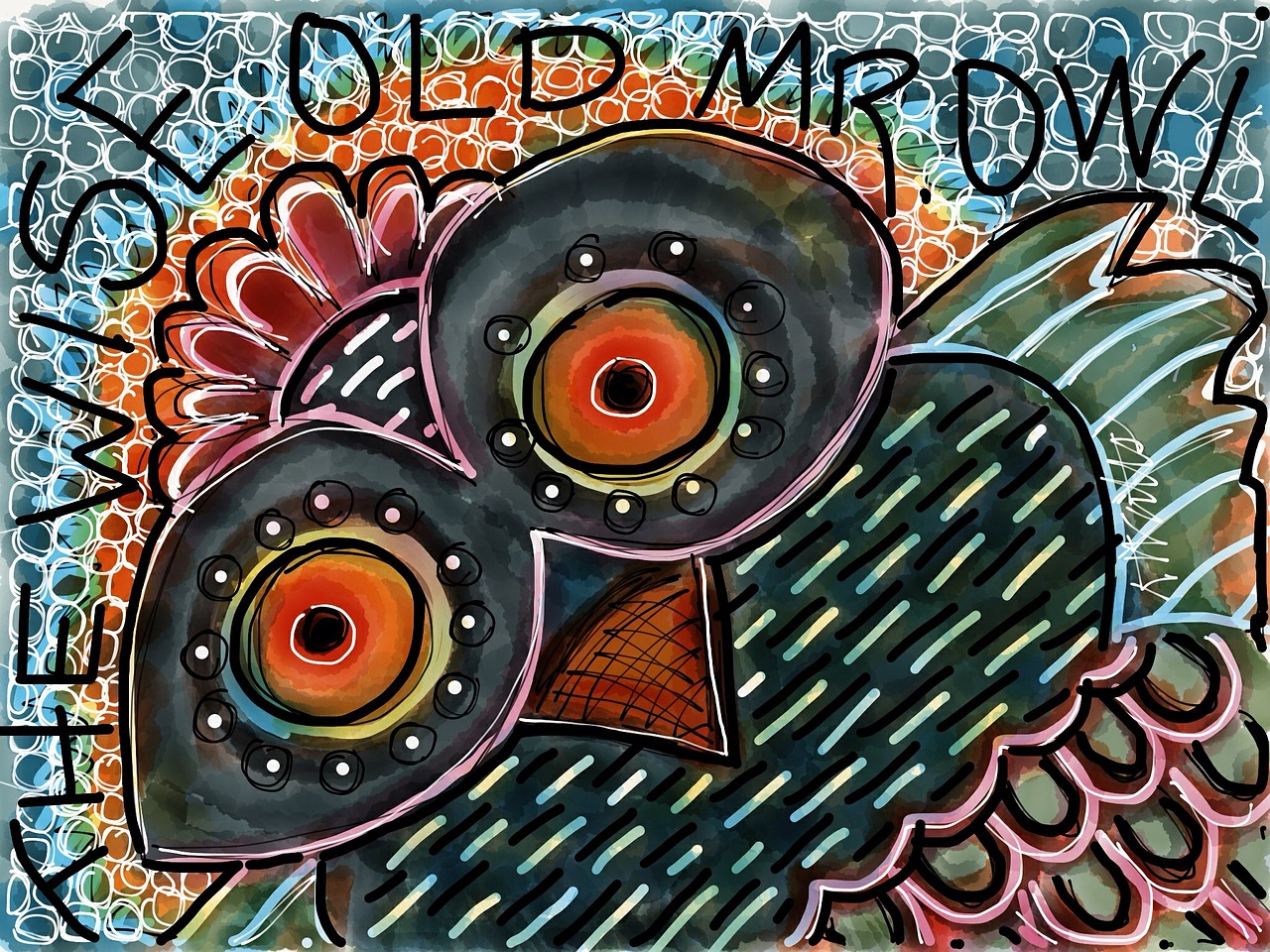How Sweet it is to Mature
Last week, as I was walking my aging dog Elvis, I caught myself deep in thought about how wonderful an experience it is that of receiving from him true, unconditional love. At some point I started reflecting on what, other than the blessing of having had him with me already for a bit more than 14 years, have I learned from this very special relationship and how sweet it is to mature.
Failing to find an answer after ‘testing’ a few rather complicated theories (as we are all tempted to do in the first instance), it came to my mind that the explanation might well lay in the simple fact that his love for me, his master, is pure, unassuming, unconditional and unquestionable. But this is something that everybody knows, so what is the real issue here?
A bit more background
The point is that, although Elvis' love for me is 'unconditional', mine is subject to limitations and complexities, and involves other kinds of emotions. By now you must be wondering what a master-dog relationship has to do (so far) with that of one complex human being relating to another.

And you are right. But maybe I should give a bit more detail so that you can understand where these thoughts come from.
A few years ago, walking Elvis was a challenge for me especially since, I don’t know why, I had this uneasy feeling that I was being walked instead…….... His strength and eagerness to experience the outside world, i.e. the neighborhood, made him walk so fast that I did not have time to think and pay attention to what was happening around me. By contrast, nowadays, although still with his insatiable curiosity intact, his pace is much slower. He stops very often to observe or smell everything in more detail and, of course, to rest.
It truly fills my heart to see that, for him, everything seems to signify a new and exciting experience. However, his level of dependency on me has increased exponentially over the last few months. As his sight and hearing are impaired now, he needs to be closer to me and, if he could, he would be next to me all the time to feel more secure.
Reflections and lessons
As I was reflecting about this, I realized that his slow pace has had an impact on me. A positive one. Interestingly enough, since a few months back, I have noticed that when I go out (alone or with Elvis), my level of awareness as regards to what there is and/or is happening around me, has increased… I have learned to ‘stop’ or, in other words, to adjust my pace. Then, according to the circumstances, I take the time to marvel at what I see and hear, at this 'new' way of connecting with my surroundings and the thoughts that cross my mind.
Another great lesson I have learned from this wonderful furry companion is that, as I stroll at his slow pace, he facilitates the art of ‘reading’, meeting and engaging with, people. All kinds of people. For him differences between age, gender, height, weight, color, religion, academic or social background or anything else for that matters, are in the least relevant. Elvis loves being praised, petted and cared for, but he also knows that things have to be done in a certain way and that limits do exist.
A Beautiful Experience
The other day Elvis walked towards a beggar and I didn't stop him. Nor did this young man make any attempt to stop him. The man had a 'good aura', didn't say a word and caressed Elvis in such a relaxed and tender way that I was overwhelmed. Then I began to reflect on what kind of 'smart instincts' (for lack of a better word or description) does my sweet dog have that he is able to so easily get the better of everyone, sometimes making it seem as if he 'influences' people in a profound way.
This made me think about our own limitations, most of these resulting from prejudice and misconceptions, as well as our own fears and internal weaknesses.
But, why to share all this?
I am sharing all this because I believe that there are similarities between what I have observed in Elvis’ behavior throughout the years and our own (human) life-cycle. We have this tendency (same as Elvis in his younger days) of living our lives at a very fast pace. We wake-up in the morning and, in a blink, it feels like the day is over and we are back in bed, exhausted. We are so busy during the day wanting to know everything, nurturing the illusion of ‘being in, or having control’, being connected to technology 24/7, all the while ignoring the looks, the smell and flavor of those elements that, together with relationships, should be paid attention to in order to make us live a ‘fuller life’.

So, are we missing something? Do we have to get to the ‘third’ age to slow down and reach a level of maturity and awareness that makes us understand life in a different way?
And the Answer Is...
The simple answer is NO, at least not necessarily. Although in the case of the para-dogs it's a simple instinct, I think we should try to emulate our pets and simply opt for happiness. I know ... easier said than done. However, if most of us pride ourselves on being (relatively) intelligent, why is it then that most of the time we succumb to the temptation to make as little effort as possible and just 'survive' in life?
Maybe, just maybe, because we do not take seriously enough the fact that making that simple, conscious effort we could ripe the mental, emotional and physical rewards that bring a simpler, happier and more positive attitude.
But beware. This is not a trivial matter. It is nothing less than the art of maturing... We must work hard, exercise patience, slow down, breathe and meditate. We must try to get through the day in harmony. It's a bit like driving a car in which, when we get in, we sit down, check the mirrors, the dashboard and the indicators, and then fasten our seat belts. Once we are well prepared, we put it in first gear, look carefully to make sure we are not going to hit (or be hit by) someone, and drive carefully paying attention to traffic (vehicles and pedestrians included).
An Attempt to Understand...
Normally our senses become even more alert. We are very aware of our surroundings and continuously look around to prevent any accident. We are constantly thinking on different strategies to prevent conflictive situations. We pay extreme attention because there is always the one oddball that will create a situation of risk just because of lack of patience.
When there is too much 'traffic
Usually, our senses are in a heightened state of alertness. We are very aware of our surroundings and look around to avoid any accidents. We are constantly thinking about different strategies in order to prevent conflictive situations.
 We pay a lot of attention as there will always be a 'curious character' who will create a risky situation just because of impatience.
We pay a lot of attention as there will always be a 'curious character' who will create a risky situation just because of impatience.
Similarly, during a busy and complicated day that may provoke high levels of stress, we need to breathe, think and focus on our task and objective. It is easy to get caught by the rush of the day and feel overwhelmed by anxiety. This will take us nowhere.
Connect to your surroundings, to the here and now, check out the distortions you may be creating. Sometimes our own fears, coupled with high levels of anxiety, can make us see things in ways that are not in line with the objective reality, bringing even more anxiety and hence creating a vicious circle.
When the 'road' is clear
A wonderful opportunity to enjoy the 'road'! However, you may be tempted to drive too fast and therefore run the risk of being the cause of an incident that could leave people badly injured (including yourself).
When you feel that you have time, grab that precious moment and ‘use’ it the best way you can, according to your needs and wants.
When you are late
Unlike the situation mentioned above, sometimes we get overly stressed because we will be late for an appointment. We might drive faster, take unnecessary risks and eventually blame the traffic for this situation. How much of this should be attributed to lack of planning on our part, or to traffic, or to what extent do we want (or need) to blame others?

In general, as we 'mature', our ability to develop ideas and follow 'cues' as to how we want it to be improves. However, this can change from one moment to the next, without warning. We must learn to be flexible because, even if we think, and harbour the idea, that we have 'control' over our lives, is this really true? Even if you want to go from A to B, you can always be surprised to find yourself forced to take a detour to C and D before you can get to B. As with road traffic, things can change at a moment's notice, so we need to be flexible and 'adapt' quickly to avoid difficult situations.
Carrying too much weight
Think about the consequences of driving a vehicle that is too heavily loaded. Its chassis, shock absorbers and engine could be damaged, which would mean that the car would require more effort and energy to keep rolling.
With the right, balanced weight you would be able to drive that car everyday in a more relaxed manner. You may even start enjoying the ride and the landscape, not losing focus on the road, of course.
Similarly, think about the physical (muscle stress), mental and emotional impact that a healthier approach to life would have on you.
I believe that an increased level of general awareness about our lives, i.e. being more connected with the meaning of our journey on this Earth, exercising more care in the process of balancing the interaction between our internal and external worlds, understanding our physical and intellectual limitations, and not least humbly embracing our luck of being here would, probably, have an ‘interesting’ impact on our emotions and relationships with people as well as our surroundings.
Therapy is no longer as stigmatized as it once was, and there’s nothing wrong with admitting you need extra support. Do not hesitate to reach out to learn more about life transition periods' treatment.

